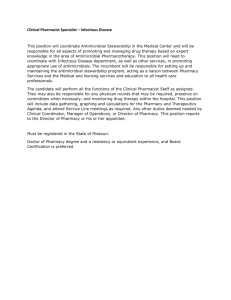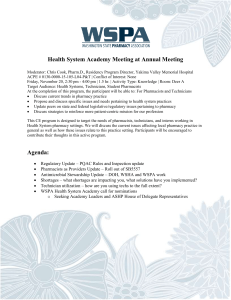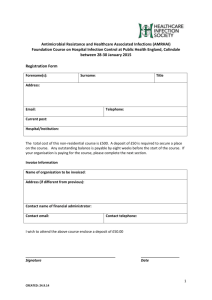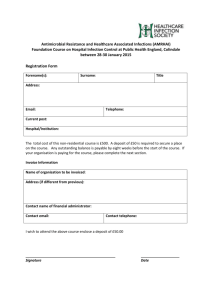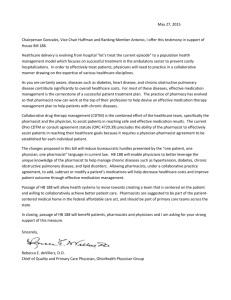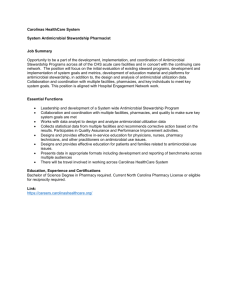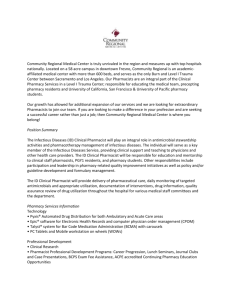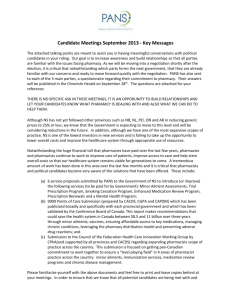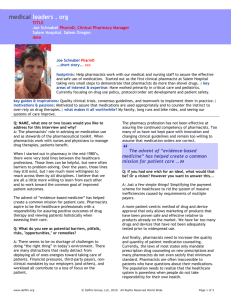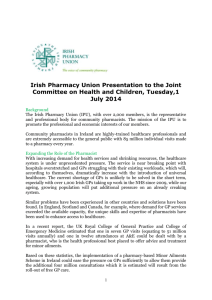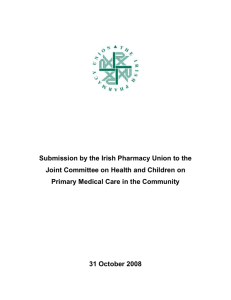OCR Document
advertisement
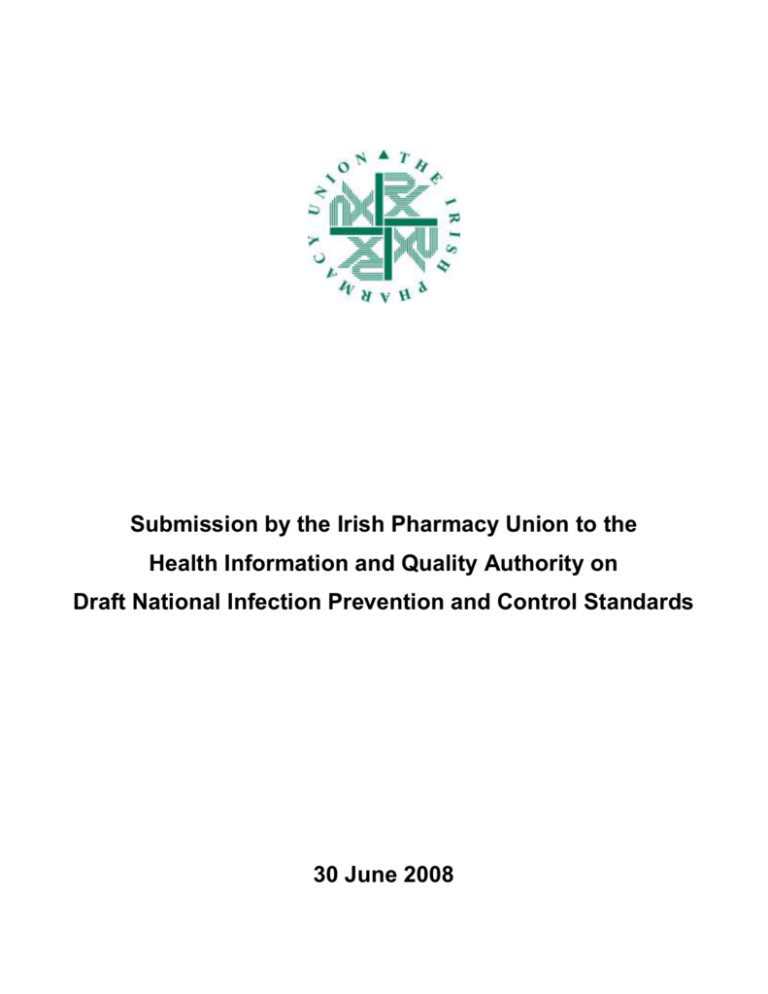
Submission by the Irish Pharmacy Union to the Health Information and Quality Authority on Draft National Infection Prevention and Control Standards 30 June 2008 Submission by the IPU on Draft National Infection Prevention and Control Standards 1. Introduction The Irish Pharmacy Union (IPU) is the representative and professional body for community pharmacists. Its mission is to promote the professional and economic interests of its members. Members of the IPU aim to provide the best possible professional pharmacy service to all members of the public. They are committed to delivering a quality, accessible, personal and professional service that puts the patient first and has as its primary goal the optimisation of the health and wellbeing of society. Pharmacists are accountable for their professional conduct and strive to maintain the confidence and respect of their patients, customers, the State and other professionals in the healthcare field. The IPU welcomes the opportunity to make a submission on the draft National Infection Prevention and Control Standards. 2. Role of the Pharmacist An estimated 636,000 people visit the 1500 community pharmacies in Ireland each week. This makes pharmacies the most accessible and visited part of the health service. Pharmacists are in a unique position to alleviate the workload of other healthcare professionals in tackling issues surrounding infection prevention. Drawing on existing resources always makes sense. Currently, pharmacists play a vital role in healthcare delivery but are still one of the most under-utilised resources in the health service. They are highly qualified healthcare practitioners who are easily accessible to the public in city and town centres, residential and rural areas throughout Ireland. People need no appointment and they have ready access in a familiar, informal environment to expert knowledge about medicines in particular and healthcare generally. The primary role of the pharmacist is to improve health outcomes by safely dispensing medicines and advising patients on how to get the optimum benefit from them. Pharmacists are able to counsel patients on the correct use of their medication and can intervene when a patient requests advice or visits the pharmacy for any reason. However, there is considerable scope to develop the 2 current level of professional services delivered by community pharmacies into a more comprehensive, structured and organised service to the community. 3. Antimicrobial Drug Resistance Antimicrobial resistance results in increased morbidity, mortality and cost of healthcare. The US Centre for Disease Control estimates that treatment of infections with antimicrobial-resistant organisms costs over US$4 billion annually. Methicillin-resistant Staphylococcus aureus (MRSA) has become one of the most widespread causes of hospital-acquired infections worldwide. Recently, MRSA has also been recovered from community-acquired infections. Vancomycin has been the most reliable therapeutic agent against infections caused by MRSA. However, resistance has now been reported. The spread of multidrug-resistant and, more recently, extensively drug-resistant tuberculosis is a threat to advances in the treatment of TB and could even reverse recent gains. A significant number of the extensively drug-resistant strains go beyond the definition and are essentially untreatable, being resistant to numerous other second-line drugs. 4. Health Promotion With 636,000 people visiting community pharmacies in Ireland each week, community pharmacists are in an ideal position to promote awareness of antimicrobial resistance. Patients should be made aware of the consequences of over-use of antibiotics and the potential for development of resistance. Pharmacists are well placed to encourage patients to seek alternatives to antibiotics for minor ailments where appropriate. A campaign on the rational use of antibiotics could incorporate leaflets and posters in community pharmacies and pharmacists could give interviews through local and national media. 5. Conclusion Addressing the problem of antimicrobial resistance requires both infection control and regulation of antibiotic use; however, the importance of a multi-disciplinary approach in tackling the problem of antimicrobial resistance should be emphasised. Close collaboration among the disciplines of infectious diseases, microbiology, hospital epidemiology, pharmacy and nursing can result in an effective programme, one readily incorporated into the quality-improvement goals of any healthcare organisation. 3 It is important to look into both the community pharmacy setting and its interfaces of cooperation with other healthcare settings, giving special attention to the teamwork that has to be nurtured among the different healthcare professionals involved. Equally important is to realise that the link and the focus will always be the patient. In this context, we believe that this submission explains the important role of the community pharmacist as part of a multi-disciplinary approach in tackling the problem of antimicrobial resistance. The Union is available to meet with the Health Information and Quality Authority to discuss the issues raised above or indeed any other relevant issues. 4
